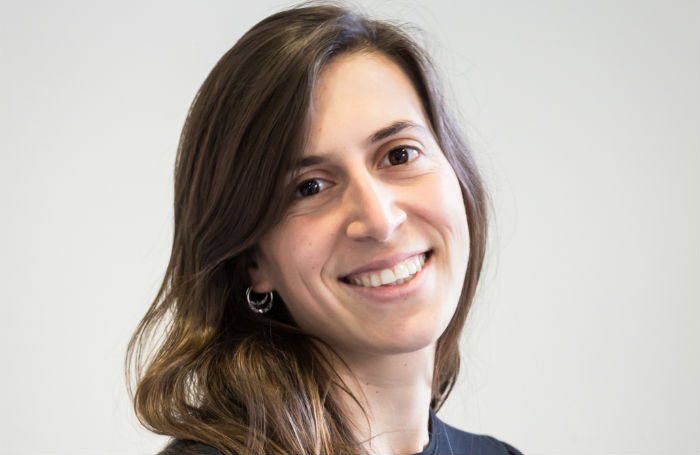Maria grew up in Sant Joan Despí, a municipality located in the Metropolitan area of Barcelona. She was raised as one of five siblings. Maria studied at the Polytechnic University of Catalonia. There she was exposed to new environments, which was an eye-opener, increasing her appetite for new experiences. She believes diversity encourages creativity:
“If we value everyone as an individual, it will make everyone able to achieve their potential.”
Growing up in a big family prepared me for adulthood. It taught me that things were not always going to be given to me just because I wanted them. My childhood experience has been a big help in preparing me for the future, for pushing my personal boundaries and making it easier to be out of my comfort zone.
My parents are an example of perseverance, always facing the life challenges step by step. Being an architect didn’t come naturally to me but I am pretty sure that their way to deal with life had an impact on the way I understand architecture.
Truthfully, I don’t know one hundred percent what drew me to work in architecture. It seemed like the field that fitted my interests and skills. I didn´t have family members who had been through university so by then I found it difficult to know who an architect really was.
Having said that, I was fortunate to have the support and encouragement of my parents, which was so valuable.
I realised I had made the right decision during my first year at university, when I started loving the profession for the way it helps bring about a connection with people, despite the demanding nature of the course.
My main motivation is to learn. I enjoy learning new things and challenging myself.
I like to think about the reason why my job exists and how my efforts can help someone. Personally, I feel happier, more engaged and more creative when I understand my job´s wider purpose. When working on a project, I enjoy the first stages, when I am able to make a good research of the topic, look for references and try to define a strong concept that will facilitate the development of the next stages. It is later though, developing the design and watching it rise out of the ground, when you start making the building part of you and this makes it special.
One of my favourite houses is from Harquitectes, for their atmospheres and for making the architecture lose some of its ego.
I am interested in how the structure defines the spaces, they don´t try to hide it, it is maintained visible whenever it is possible.
Being in a very harsh context of recession in Spain, they learnt to find a new approach to architecture, looking for opportunities even where there were apparently none. They had to demonstrate efficiency at every step so the frivolities were left out.
A few projects in my career so far have been a turning point for me. The first was my Master´s Final Project, which was a unique opportunity to compile the knowledge learnt throughout the degree. Years of exploration and discovery had to be channelled in a creative and rigorous way to respond to a series of cultural, environmental, technological and design challenges.
Another project I have great affection for is located in ThionckEssyl, south of Senegal. I had been involved with cooperation organizations during my years as a student and soon after graduation I travelled to ThionckEssyl to be part of the construction management team for the prototype classroom of a Secondary School. Working and living directly with the local communities led me to ask myself fundamental questions that have affected my life and my future involvements.
I arrived in Newcastle in October 2016. For me it was like starting from scratch, having to understand how the architecture worked in the UK and making the North East my new community. Luckily for me, people helped me cross that path from the beginning.
I have now worked at Medical Architecture for just over a year. They helped me to qualify as an Architect in the UK. Making diversity seem natural, generating an atmosphere of trust and mutual support.
In my views if there is a greater diversity, a new face can be added to the profession and it will generate an exchange of culture and knowledge, rather than fitting into a traditional way of doing things.
Enhancing diversity and inclusion will also encourage wide community engagement. Architects should have to connect, understand and be part of the community that they are serving in order to design for the community.
Maria's contribution is part of our Faces of Architecture campaign, celebrating the diversity of architects in the North East. If you would like to get involved please contact Amy Tomlinson










